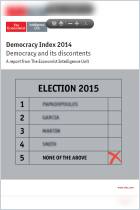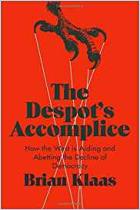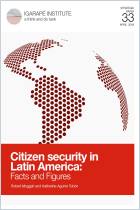
Recommendation
Mexico’s landmark 2000 elections put an end to seven decades of single-party rule. For many observers, they marked the culmination of the country’s transition to true democracy. Unfortunately, however – as Gladys I. McCormick and Matthew R. Cleary from Syracuse University’s Maxwell School of Citizenship and Public Affairs explain in Foreign Affairs – this historic change brought neither improved rule of law nor better public services. getAbstract recommends their case study as an illustration that free and fair elections do not necessarily guarantee good governance.
Summary
About the Authors
Gladys I. McCormick and Matthew R. Cleary teach history and political science at Syracuse University’s Maxwell School of Citizenship and Public Affairs.










Comment on this summary